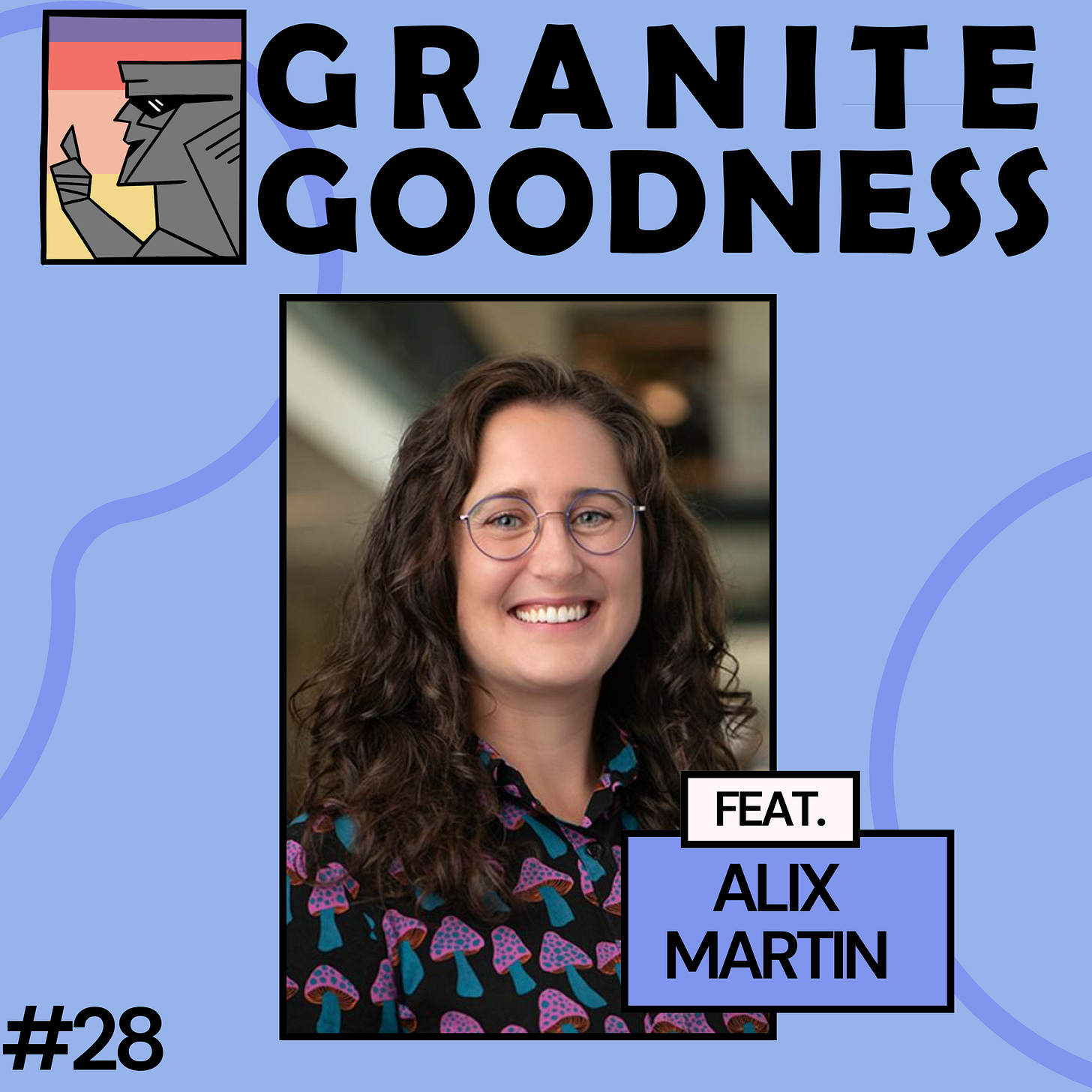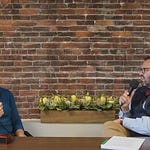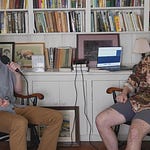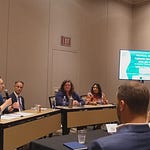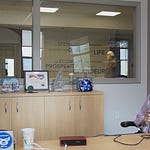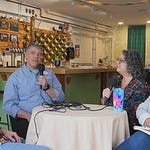On episode 28 of Granite Goodness, Andy chats with historical archaeologist and anthropologist Alix Martin. Mostly they talk about why grave robbing is bad, but the two also cover:
Alix’s Early Passion for History: Alix’s love for history began in childhood when visiting historical sites, where the connection between artifacts and real lives made history feel vivid and accessible.
Focus of Historical Archaeology: Alix specializes in historical archaeology, studying the past few hundred years, using artifacts to fill in details of everyday life often missing from written records.
The Shift in Archaeological Ethics: Alix highlights the field’s evolution toward ethical practices, prioritizing collaboration with descendant communities, especially indigenous groups, to respectfully handle artifacts and remains.
Value of Studying Everyday Life: She believes studying ordinary lives gives people today a sense of connection and helps validate the importance of every individual’s contributions to history.
The Concept of “Living History”: Alix sees history as ever-evolving, emphasizing that as new perspectives emerge, our understanding grows, making history a continuous story we all contribute to.
and more!
Dr. Alexandra Martin is a historical archaeologist and anthropologist at Strawbery Banke Museum in Portsmouth, NH. She is also a faculty fellow in anthropology at the University of New Hampshire.
Links & Notes:
Instagram:
Linkedin:
AI Generated Episode Summary*
What sparked your interest in history and archaeology?
I became fascinated by history as a kid, especially when I visited places like Orchard House, where the writer Louisa May Alcott lived. Standing in historical spaces, seeing items they used—it made history feel tangible and connected to the present. That experience stayed with me, and it’s why I became an archaeologist.
How did you end up back in New Hampshire?
I’m from New Hampshire originally, and even after studying and working out of state, I always felt a pull to return. My husband and I are both from here, and when I was able to conduct my research from New England, moving back felt like coming home. I now work at Strawbery Banke Museum and teach at UNH.
Can you tell us about your role at Strawbery Banke Museum?
Strawbery Banke is unique because it tells the stories of ordinary people from many time periods, not just a single famous figure. The museum is a living neighborhood with buildings from different eras, representing various residents' lives over centuries. It’s about showing how communities change over time.
What’s special about historical archaeology?
Historical archaeology focuses on the past few hundred years, where there’s some written record but often gaps in the story. We use archaeological evidence to fill those gaps, particularly when it comes to the lives of everyday people who were often left out of written history. It’s about adding to our understanding, not rewriting it.
How do you see archaeology evolving in terms of ethics and collaboration?
The field has shifted a lot. Early archaeology often involved taking artifacts and remains without consulting the communities connected to them. Today, we prioritize working with descendant communities, especially indigenous peoples, to ensure respectful and meaningful research. Collaboration enriches our work and makes it more ethical.
How did COVID change your work in archaeology?
The pandemic reminded us how people's behaviors change in response to major events. During COVID, I observed shifts in recycling habits, for example, as people adjusted to new routines. If future archaeologists studied that period, they’d see a snapshot of how we adapted, which highlights the value of capturing everyday life.
Why is studying “ordinary” people’s history important?
Everyone’s life has historical value. Studying the lives of regular people lets us see patterns in how communities lived and adapted. It validates that all contributions matter, and helps people today feel a connection to history—they realize they’re part of a larger human story that continues to unfold.
What was it like working on archaeological digs as a young student?
I was lucky to have a teacher who helped me volunteer on my first dig in seventh grade. It was an incredible experience and confirmed my passion for archaeology. Since then, I’ve been dedicated to understanding history through artifacts and sharing those stories with others.
How do you help your students understand the relevance of anthropology?
I remind my students that anthropology is about people and our shared experiences. Through archaeology, we see both the diversity and the commonalities of human cultures. It’s about understanding others and recognizing the connections we have across time, which helps students appreciate different perspectives.
Why do you believe history is constantly being written?
History isn’t static; it’s shaped by the stories we choose to tell. As we gain new insights, we add to our understanding. It’s not about erasing past accounts but expanding them to include voices that were previously overlooked. This approach allows us to build a richer, more inclusive view of our shared past.
*This episode summary was generated by an AI analyzing a transcript of the interview. The questions, wording, and written meaning of particular sections may contain slight differences to the original conversation. We include these summaries to give listeners a brief, readable synopsis of the episode. The full episode transcript is available on granitegoodness.com.


